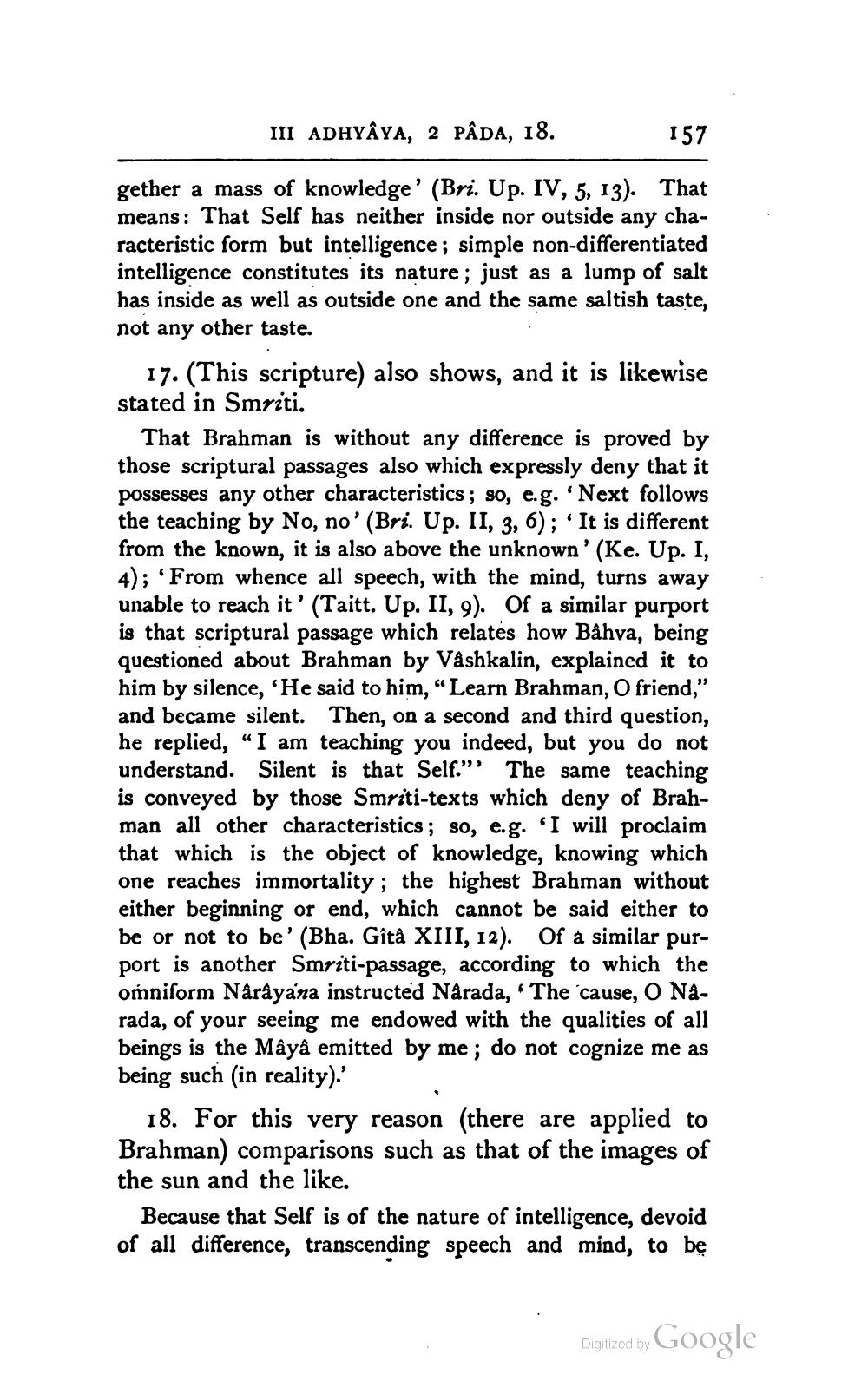________________
III ADHYAYA, 2 PÂDA, 18.
157
gether a mass of knowledge' (Bri. Up. IV, 5, 13). That means: That Self has neither inside nor outside any characteristic form but intelligence; simple non-differentiated intelligence constitutes its nature ; just as a lump of salt has inside as well as outside one and the same saltish taste, not any other taste.
17. (This scripture) also shows, and it is likewise stated in Smriti.
That Brahman is without any difference is proved by those scriptural passages also which expressly deny that it possesses any other characteristics; so, e.g. 'Next follows the teaching by No, no' (Bri. Up. II, 3, 6); 'It is different from the known, it is also above the unknown' (Ke. Up. I, 4); 'From whence all speech, with the mind, turns away unable to reach it' (Taitt. Up. II, 9). Of a similar purport is that scriptural passage which relates how Båhva, being questioned about Brahman by Váshkalin, explained it to him by silence, 'He said to him, “Learn Brahman, O friend," and became silent. Then, on a second and third question, he replied, “I am teaching you indeed, but you do not understand. Silent is that Self.” The same teaching is conveyed by those Smriti-texts which deny of Brahman all other characteristics; so, e.g. 'I will proclaim that which is the object of knowledge, knowing which one reaches immortality; the highest Brahman without either beginning or end, which cannot be said either to be or not to be' (Bha. Gîtà XIII, 12). Of a similar purport is another Smriti-passage, according to which the omniform Narayana instructed Närada, The cause, O Na. rada, of your seeing me endowed with the qualities of all beings is the Mâyâ emitted by me; do not cognize me as being such (in reality).'
18. For this very reason (there are applied to Brahman) comparisons such as that of the images of the sun and the like.
Because that Self is of the nature of intelligence, devoid of all difference, transcending speech and mind, to be
Digitized by
Digitized by Google




